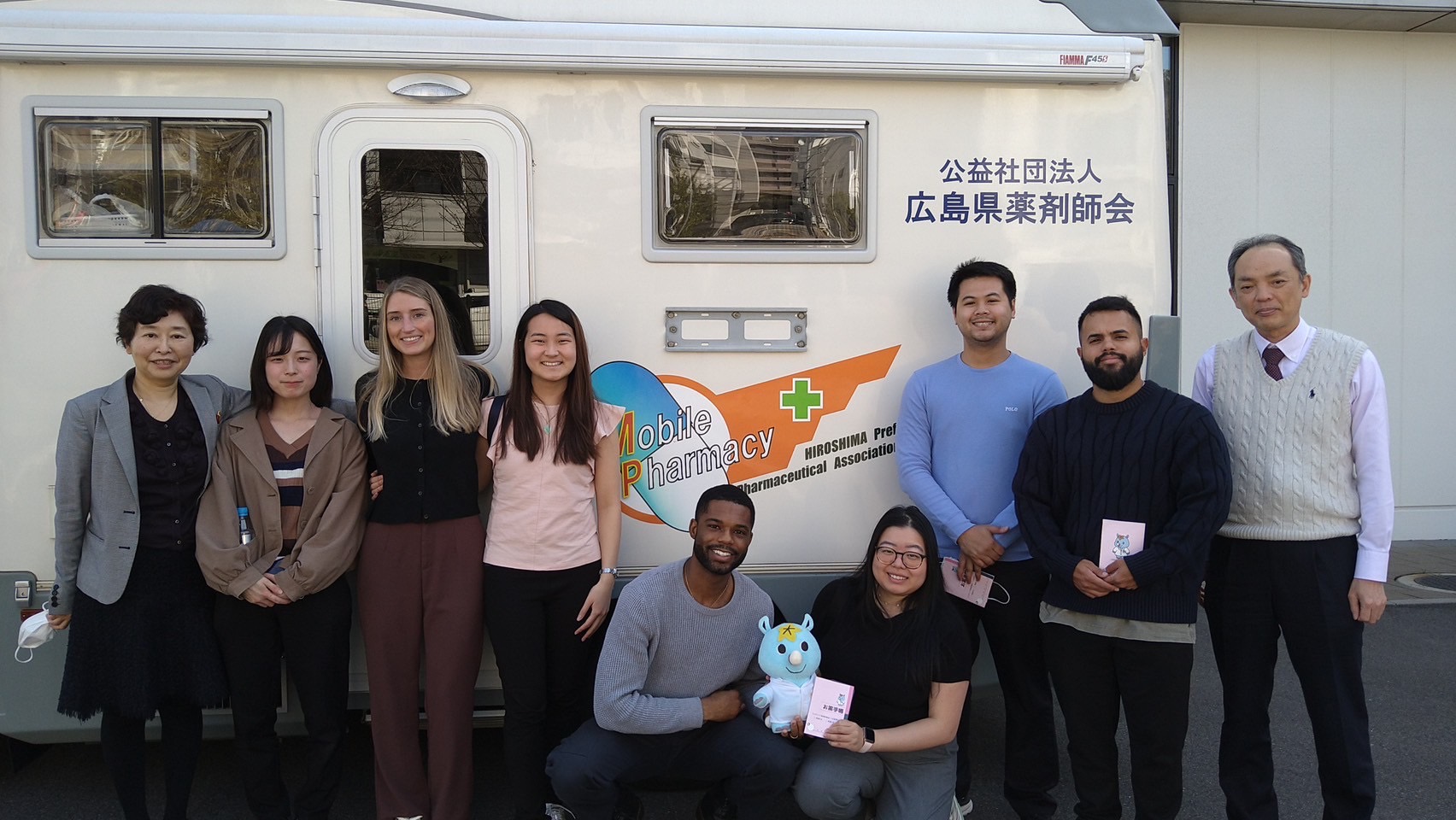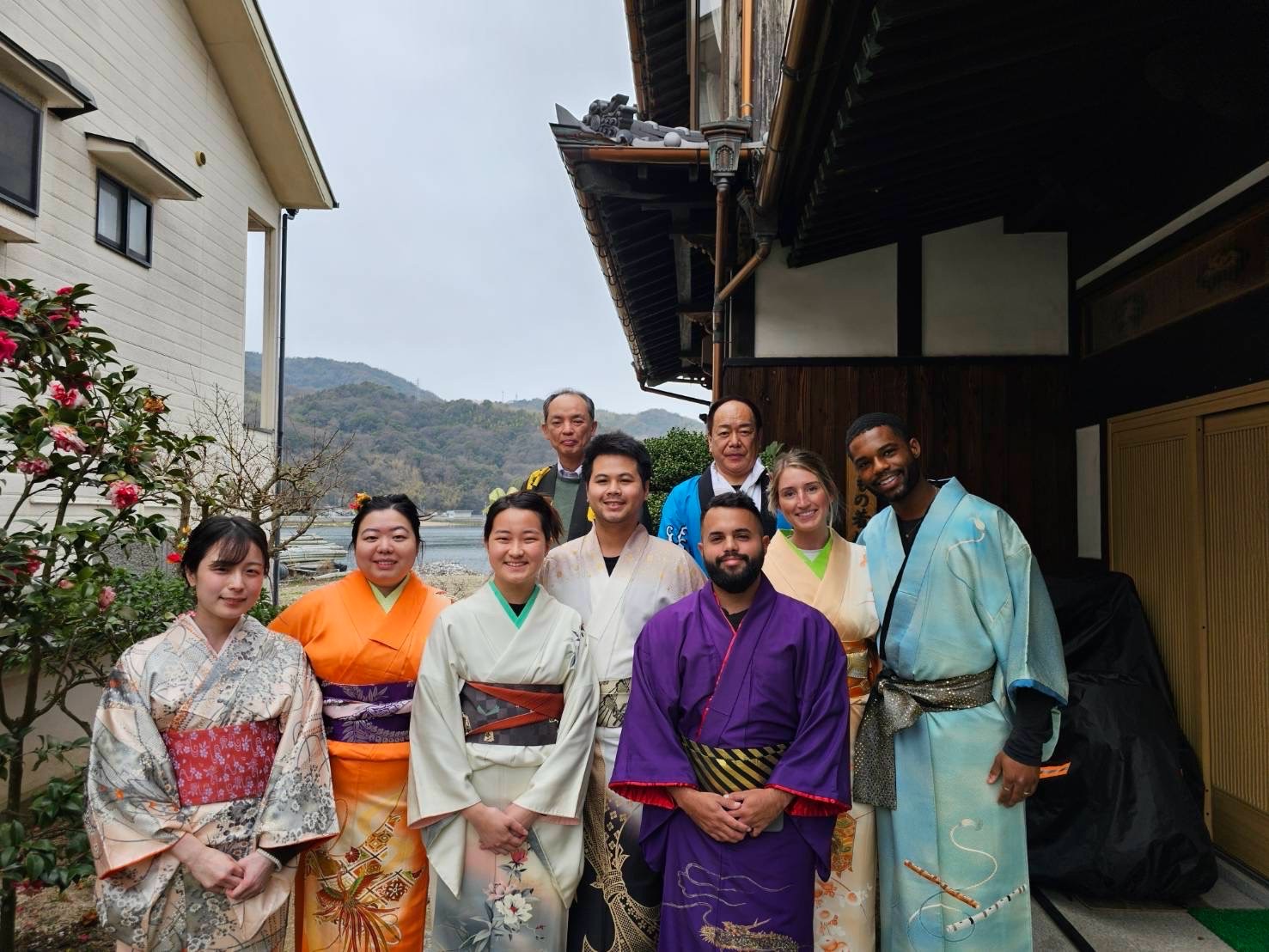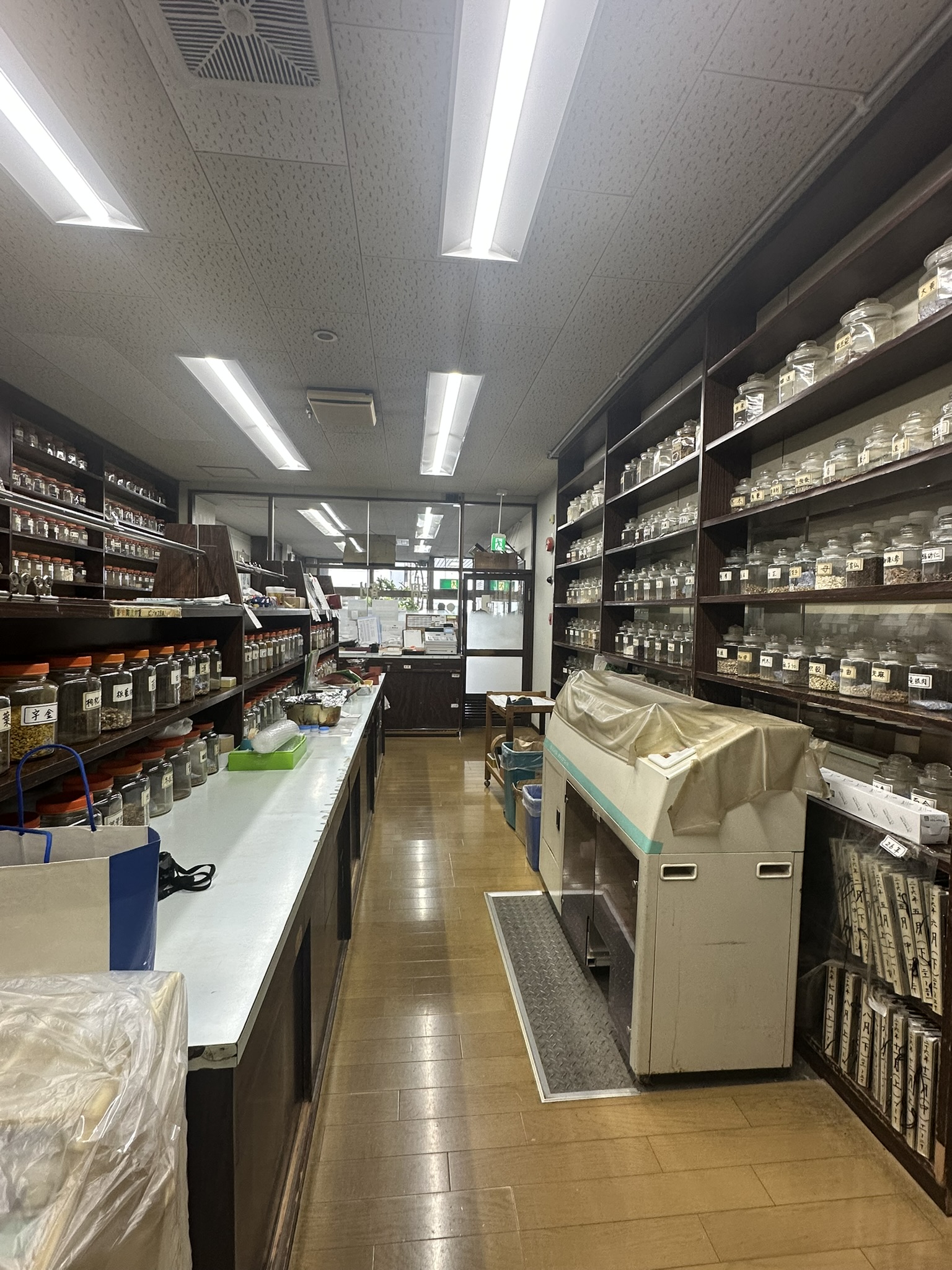Adrienne Kue, PharmD
International APPE site: Hiroshima University Hospital, Hiroshima, Japan
Gaining a broader perspective on global healthcare and understanding the roles and responsibilities of pharmacists in different countries has always been important to me. As someone whose family immigrated to the United States, I have been interested in the impact of healthcare systems across cultures. Participating in an international APPE offered a unique opportunity to expand my knowledge of pharmacy practice beyond the U.S. context.
Gaining a broader perspective on global healthcare and understanding the roles and responsibilities of pharmacists in different countries has always been important to me. As someone whose family immigrated to the United States, I have been interested in the impact of healthcare systems across cultures. Participating in an international APPE offered a unique opportunity to expand my knowledge of pharmacy practice beyond the U.S. context.

Having the chance to explore and immerse myself in the culture and history of Japan was especially meaningful, and one of the reasons I was drawn to the program at UTHSC College of Pharmacy.
A typical day during the rotation began with a morning briefing in a conference room, where we received an overview of the day’s schedule. We spent much of the day shadowing pharmacists in various clinical settings. We would have the chance to compound, explore investigational studies, and be involved in repackaging. Educational presentations were provided to help us better understand the pharmacists’ roles, responsibilities, and their impact on patient care. We accompanied them on patient rounds, observed counseling sessions, and data collection processes. Each patient interaction highlighted the pharmacists’ dedication, compassion, and commitment to delivering high-quality care. In the afternoons, we remained on the hospital campus to work on assigned projects, explore the facility/surrounding area, or engage with fellow students and staff.

There were several memorable experiences during my time abroad. Some of the most impactful included our visits to the Atomic Bomb Museum, the Japanese Red Cross Medical Center, and the National Cancer Center in Tokyo. Another highlight was the opportunity to present on UTHSC’s curriculum and history to faculty and students at Keio University.
Visiting the Atomic Bomb Museum was particularly profound, as it provided a deeper understanding of the historical and ongoing effects of the bombing on Japan’s people and healthcare system. I was also struck by the distinct differences in drug distribution and compounding practices compared to those in the United States. One of our final experiences was a visit to a Kampo pharmacy, where we explored the practice of traditional Japanese herbal medicine. Unlike in the U.S., where herbal remedies are typically over the counter, Kampo is integrated into formal healthcare in Japan. We learned about the scientific basis of Kampo and even had the opportunity to prepare our own formulations for personal consumption, it was an incredibly unique experience.
One lesson was the value of cultural humility in patient care. Being immersed in a different healthcare system taught me that effective communication and patient engagement often require a deep understanding of cultural beliefs, values, and expectations. Unlike a standard APPE, this rotation challenged me to adapt my approach to care in a setting where language, customs, and healthcare practices differed from those I was familiar with. It reinforced the importance of being open-minded, flexible, and compassionate, all qualities that are essential in providing meaningful, individualized care to diverse patient populations.
This experience has reinforced the importance of empathy, cultural sensitivity, and human connection in pharmacy practice. In Japan, a significant portion of the patient population is older adults, many without close family or caregivers. This highlighted the pharmacist’s role not only as a healthcare provider but also as a source of support and compassion.

Immersing myself in a different healthcare system allowed me to see how cultural norms influence patient expectations, communication styles, and trust in the healthcare team. I learned that being an effective pharmacist directly involves understanding how our actions, demeanor, application of pharmaceutical knowledge, and communication can profoundly affect a patient’s wellbeing. This perspective has strengthened my commitment to patient-centered care and will continue to shape the way I approach pharmacy practice moving forward.
About the International APPE Program
UT Health Science Center College of Pharmacy’s International APPE program allows students have the opportunity to complete their Advanced Pharmacy Practice Experiences (APPEs) abroad, gaining valuable experience in caring for culturally diverse patient populations. Students may apply for rotations in a variety of international healthcare settings including Ireland, Spain, Thailand, Canada, and Sweden.

